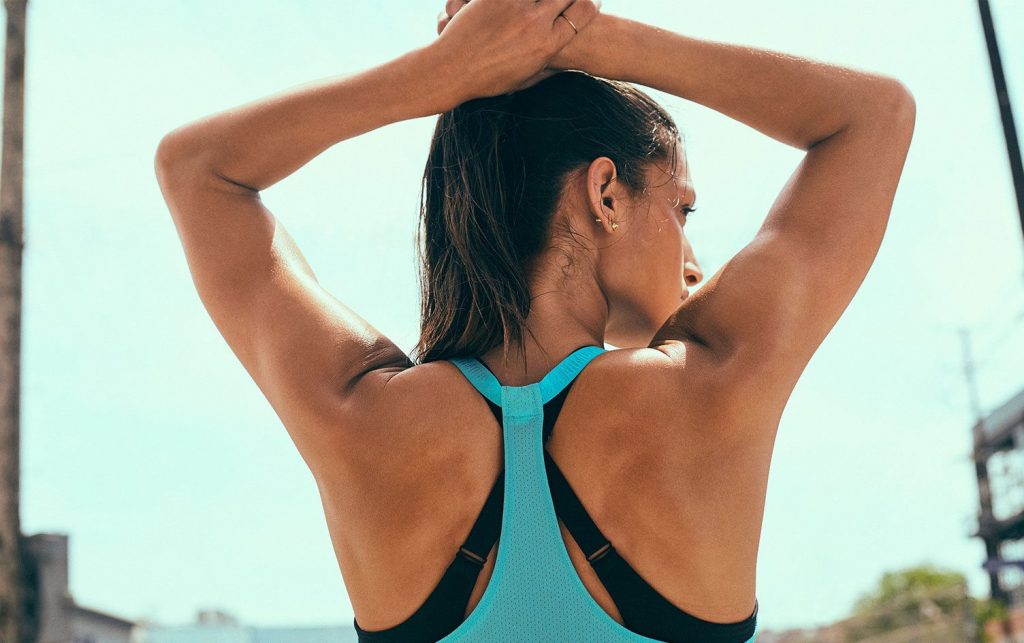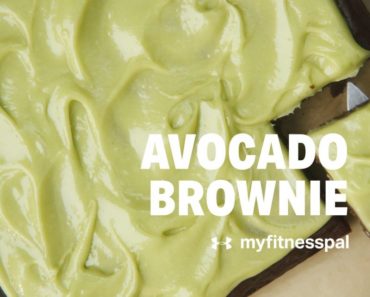
If you work out, you break a sweat because when you exercise, you’re increasing your body’s core temperature. Sweating is the body’s way of cooling itself down, so while it may not always be pretty, it’s completely normal — and healthy, too. But does the amount you sweat matter? What if you’re dripping after a run or an indoor cycling class, and the person on the bike next to you is perfectly dry? Does that mean they’re they more fit than you or that you worked harder?
Beat the heat with Under Armour Coolswitch gear, designed to cool your body and skin so you can perform longer when the heat rises.
No matter what, it’s important to know the ins and outs of sweating — and that when it comes to sweat, it isn’t quite black and white. We chatted with experts to find answers to common questions about sweating and what it all means.
1. WHY DO SOME INDIVIDUALS SWEAT MORE THAN OTHERS?
There are a lot of factors that come into play when it comes to the amount you sweat — age, body size, fitness level, hydration, body-fat percentage and size of sweat glands, to name a few. Different combinations of these characteristics can cause different degrees of sweating. “In runners, a bigger, unfit person may sweat a lot because they get uncontrollably hot during exercise,” says Chris Stevens , PhD, a lecturer at the School of Health and Human Sciences at Southern Cross University who specializes in exercise and sports science. “However, a well-trained runner who often exercises in the heat will also sweat a lot due to a conditioned, heat-acclimation response, that occurs early on during exercise to prevent that athlete from becoming too hot.”
WATCH > FIT TIPS: STAYING ACTIVE THROUGH HOT WEATHER
2. IS IT UNHEALTHY NOT TO SWEAT A LOT?
As mentioned, sweating helps cool the body’s core temperature, so sweating is healthy. If you’re not sweating, you need to look at the reasons why. First, you could be dehydrated. “If it is hot outside and you’re planning to work out intensely, you might want to cut back on coffee and alcohol and increase your consumption of water,” suggests Michelle Lovitt, CSCS, a fitness expert and coach in Los Angeles. Lack of hydration not only affects how much you sweat, but it can also cause dizziness and cramps.
If you’re well hydrated, working out hard and still not sweating a lot, it’s not necessarily a cause for concern as long as your body isn’t overheating. “It is a matter of efficiency, and how effectively you are able to cool your body during activity and when you are in hot and humid environments,” explains Neal Pire, CSCS, the national director of wellness services at Castle Connolly Private Health Partners in New York City.
3. IS SWEATING A BAROMETER FOR WORKOUT INTENSITY?
While it can be, sweating doesn’t always correlate with exercise intensity. “With increased intensity, the body works harder, meaning core temperature is elevated, and sweating helps to cool your core,” explains Lovitt. “However, if the intensity is high and you are dehydrated, you won’t be able to sweat and cool your body down efficiently.”
Environment also plays a role when it comes to sweating. We sweat more during light exercise in a hot and humid environment, compared to heavy exercise in a cold and dry environment, explains Stevens. Plus, ambient conditions affect your body’s ability to perform at high intensity levels. “For example, playing hard, 2-on-2 basketball outside in 50-degree, dry weather, you will be able to work harder and longer, than you will trying the same in 90-degree weather, with 50% relative humidity, where sweating, and thus body cooling, is impeded,” says Pire.
READ MORE > 7 WAYS TO SURVIVE WORKOUTS ON BRUTALLY HOT DAYS
4. DO FITTER PEOPLE SWEAT EARLIER AND MORE IN THEIR WORKOUTS?
Generally speaking, yes. “Fitter people tend to be more heat-acclimated even if they don’t train a lot in hot environments,” says Stevens. “Heat acclimation occurs when our body experiences hotter temperatures, and the body adapts with an earlier onset of sweat and increased sweat volume.” In other words, a fit individual’s body is efficient and used to regulating body temperature at various intensities.
5. DOES THE AMOUNT YOU SWEAT CORRELATE TO YOUR FITNESS LEVEL?
The more heat you build up, the more you sweat, reiterates Pire, but that doesn’t necessarily directly relate to your fitness level. “While highly fit athletes sweat a lot due to acclimation, highly unfit athletes can sweat a lot due to overheating,” says Stevens.
6. DOES SWEATING DETOXIFY THE BODY?
Don’t believe everything you hear. “While sweating is healthy, the kidney and liver are responsible for detoxing your body, not sweat,” explains Lovitt.
The post Everything You Want to Know About Sweat and Sweating appeared first on Under Armour.
(via MyFitnessPal Blog)






